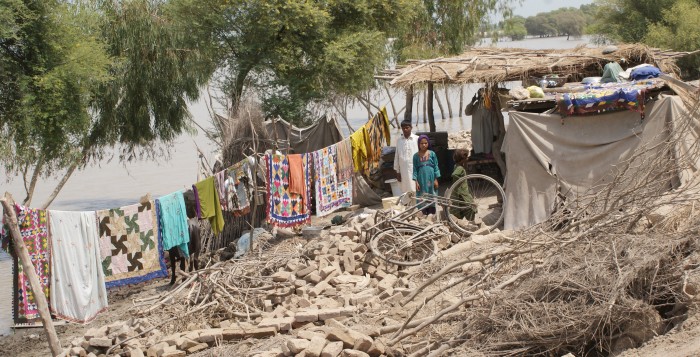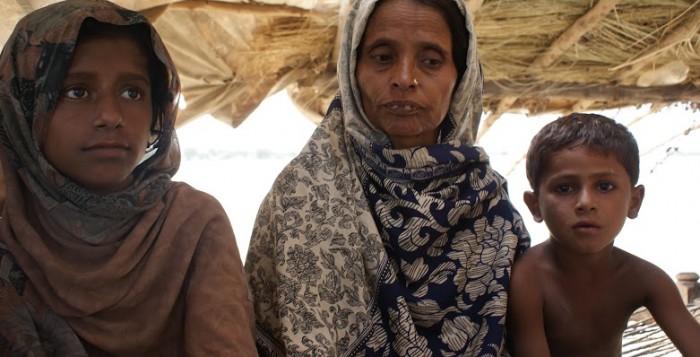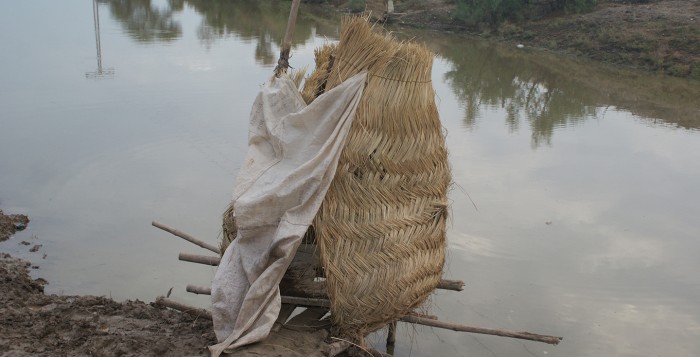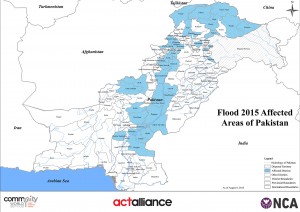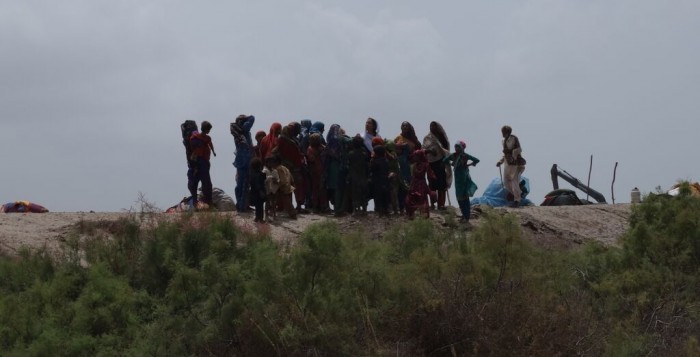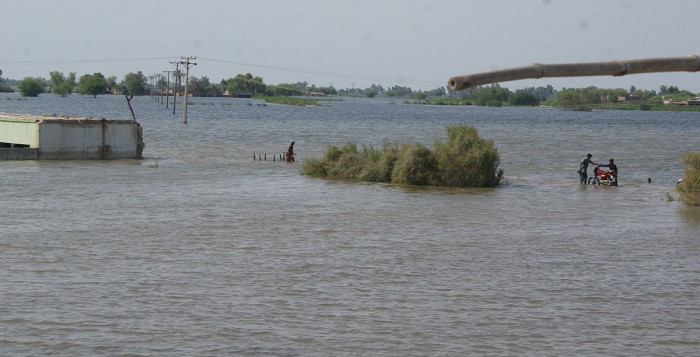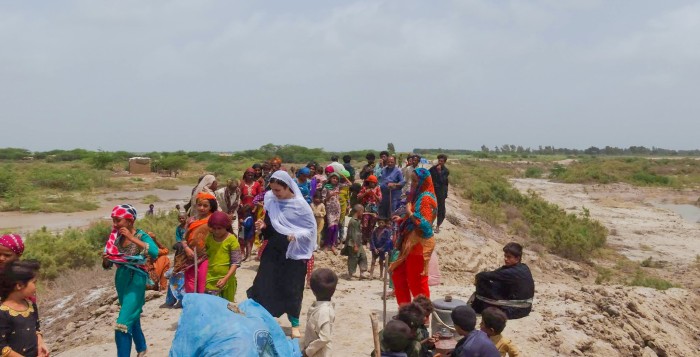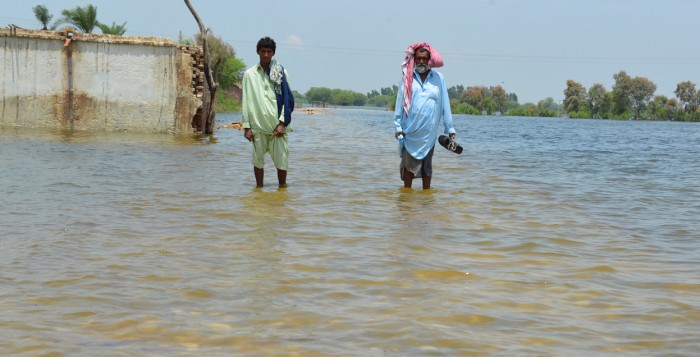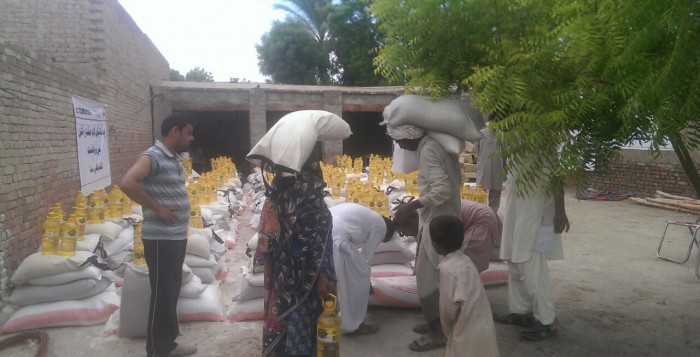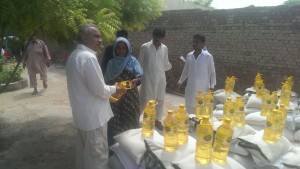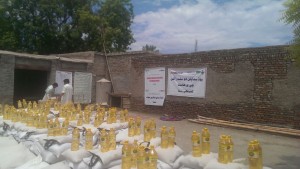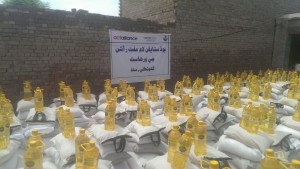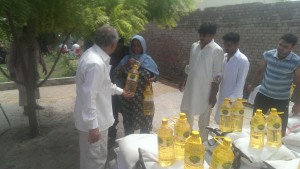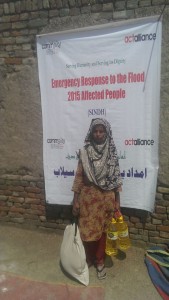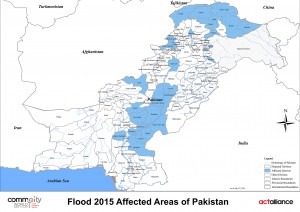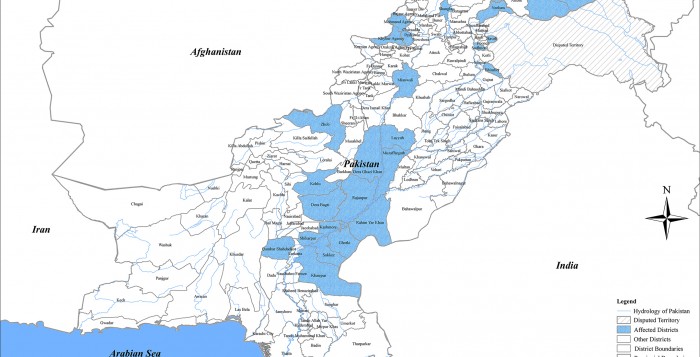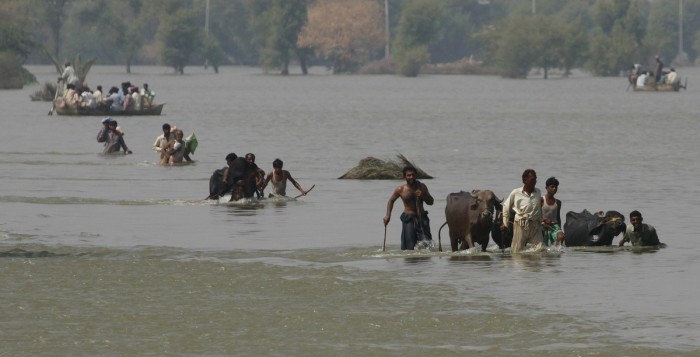Assistance to flood affected communities in Sindh and Punjab
“Rains continues as the number of affected people crossed 1.5 million figure Across Pakistan”
8th September 2015
Background
The flood emergency in Pakistan has affected the lives, livelihood and health of hundreds of communities across the country. The rains that started in the third week of July this year continued with short intervals. The heavy showers of rain coupled with glacial melts that led to lake outbursts created havoc among the communities living along the river beds in Khyber Pukhtunkhwa (KPK), Punjab and Sindh Provinces. According to the National Disaster Management Authority (NDMA) latest update, the number of affected people has crossed the 1.5 million figures and still counting. Sindh remained the worse affected of all the provinces as the number of affected people in Sindh province alone is reported to be under a million. So far 1,529,189 people have been affected leading to 220 deaths and 189 injuries.
The prevailing high temperatures in northern areas combined with rainfall may trigger flash floods in Gilgit-Baltistan and Chitral which is further expected to result in heavy inflows into the local rivers and streams of northern areas. Owing to the current meteorological conditions, the Sindh province being on the tail end of the country is most vulnerable to further damage as all the water from the glacier melts, rains and floods is expected to flow south.
Impact of the Floods:
Sindh: Seven districts and around 3,157 villages have been affected by the floods in Sindh so far. The affected districts in Sindh include Kashmore, Gothki, Shikarpur, Khairpur, Sukur, Qambar Shahdadkot and Sujawal (Thatta). In Sindh alone 958,694 people have been affected and the number is still increasing as the low lying areas are now receiving flood waters flowing in from the upper parts of the country. Due to the geographical situation of the Sujawal (Thatta) district, the area is expected to receive more flood water and more villages of the district are expected to be affected in the coming days.
Punjab: At least 58 people have died and 11 are reported to be injured due to heavy rains and flood emergency in the Punjab Province. A total of 586 villages in Mianwali, Layyah, DG Khan, Rajanpur, Rahimyarkhan and Muzaffargarh districts are inundated by the floods. In total, 463,902 people have been reported to be affected in the province. Rajanpur is declared as the most affected district in Punjab where the local government declared emergency for urgent relief. A total of 256,000 people have been affected by floods in three Tehsils of district Rajanpur where there is a huge need of clean drinking water and sanitation along with hygiene promotion.
Khyber Pakhtunkhwa (KPK): Fourteen districts have been affected by the floods in KPK whereas 102 people have reportedly died and 108 injured. A reported 3,977 houses have been damaged of which 684 have been completely destroyed. The affected districts in KPK include Abbotabad, Bannu, Batagram, Charsadda, Chitral, DI Khan, Hangu, Karak, Kohat, Lakki Marwat, Mansehra, Peshawar, Swat and Shangla.
Gilgit-Baltistan:
Diamer, Gilgit, Ghizar, Ghanche, Skardu and Hunza districts in this region have been reported to be severely damaged. A total of 286 villages and 812 houses are reported damaged as a result of rains, landslides and flashfloods. This has left seven people dead and an overall 35,717 people affected. A number of roads and connecting bridges have also been washed away that have left many villages disconnected from the urban centres.
Azad Jammu and Kashmir (AJK):
Districts Sudhnoti, Neelam, Havaili and Bhimber of AJK have been reported to be severely affected by the recent rains and flash floods which have resulted in the death of 26 people, damaged 17 villages and 408 houses completely.
Baluchistan: Heavy rainfall, windstorm and the resulting floods in districts Zhob, Musakhel, Killa Saifullah, Kohlu and Dera Bugti of Baluchistan has damaged flood protection bunds, electric poles, roads and has uprooted many trees and plantations. The floods have also caused ruptures at various points in the protection bunds and has claimed four lives so far. A total of 16 people have died so far while 34 others have been reported injured. On the whole, 69,976 people are affected in this province and 1,176 houses damaged.
FATA: A reported 11 people have died and 13 have been injured in Khyber and Mohamand agencies of Federally Administered Tribal Areas due to the floods. A total of 424 houses and 19 villages have been damaged across the FATA region which has resulted in affecting around 900 people.
Pakistan ACT Forum Response:
Community World Service Asia has started responding in two districts of Ghotki and Sujawal to the recent flood crisis in Sindh Province. Under its planned assistance, 3,223 flood affected families have been assisted with one month food rations. As per the findings of the assessment of Community World Service Asia team, a number of districts in Sindh are already affected and thousands of more are displaced who are in dire need of food, non-food items (NFIs) and health assistance. The Community World Service Asia team is also assessing the additional emergency and early recovery needs of the communities.
NCA has started emergency response through its partner Sungi in Rajanpur (Punjab) to reach a total of 15,000 flood affected individuals by utilizing their own of 600,000 NOK, The interventions will be carried out in UC jahanpur, UC Hajipur and UC noorpur in Rajanpur district. NCA has installed two water treatment units and have started to deliver water to 10,000 individuals. The Third water treatment unit will be installed and operational by end of this week and water will be transported though water trucks which is expected to fulfill the water needs of an additional 5000 individuals. NCA has its own WASH stock that includes 4000 jerry cans, 93000 aqua tabs and 857 emergency hygiene kits that will be distributed in community.
NCA Pakistan also plans to reach 4,500 individuals through WASH by utilizing ACT appeal grant of 60,000 USD starting from 15th of September 2015 and will end on 15th of February 2016. Through ACT appeal NCA will be reaching to same individuals in areas of their origin. The interventions will include construction of 100 improved sanitation facilities, installation and rehabilitation of 45 hand pumps, distribution of 100 hygiene kits and hygiene promotion.
For more information on the appeal, please refer to the following links:
ACT Appeal Pak 151
Funding Status
| Contacts: | |
| Allan A. Calma
Deputy Director – Disaster Management Program Community World Service Asia Cell: +92 301 5801621 |
James John
Deputy Country Representative Norwegian Church Aid (NCA) Email: james.john@nca.no Cell: +92 345 8551289 |





